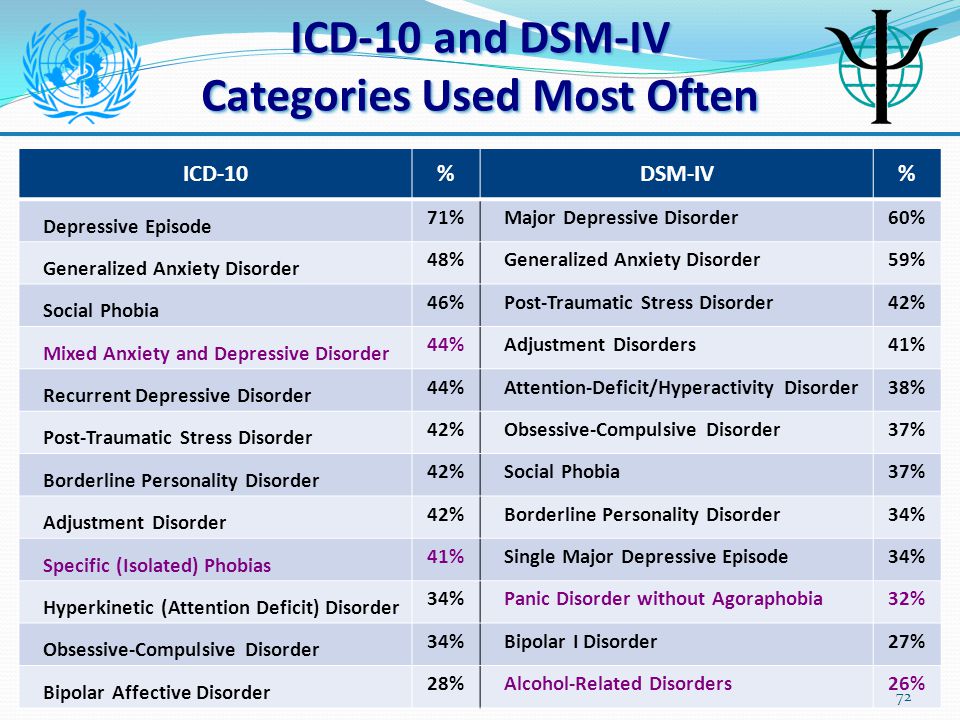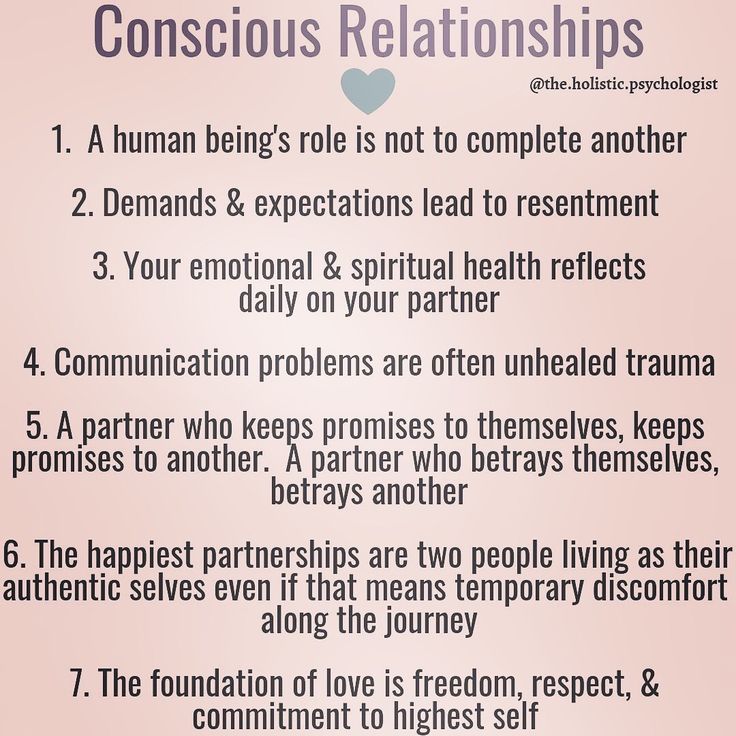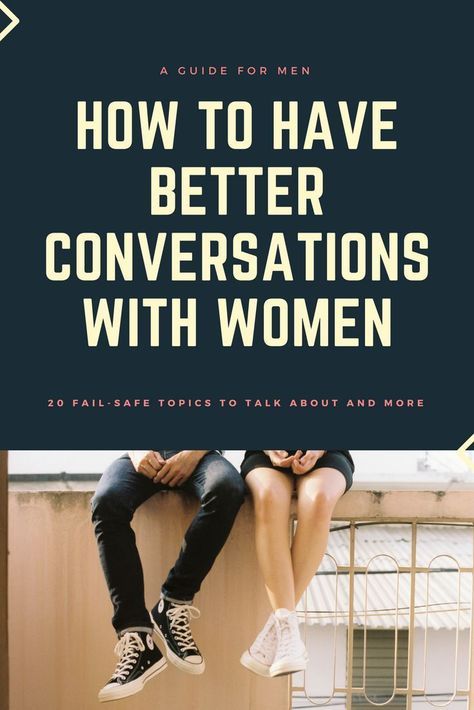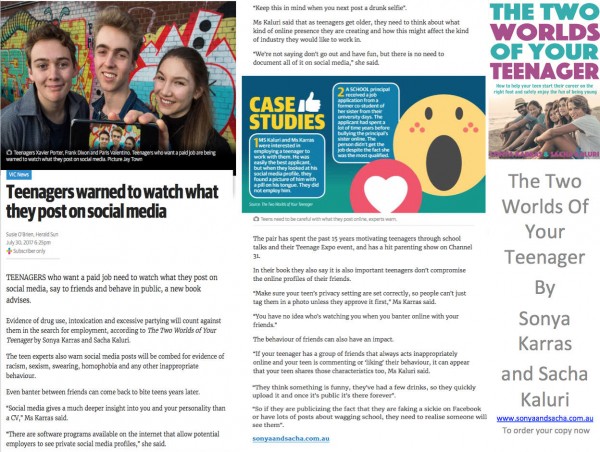How to stop being a pleaser
13 Ways to Stop Being a People-Pleaser
There's nothing inherently wrong with being nice or kind to someone else. In fact, it's a pretty valuable trait. But it can also be something we do to avoid disappointing others or put pressure on ourselves to live up to an ideal image. A lot of people-pleasers consciously choose to act this way because they are afraid of upsetting others. It is a great way to avoid conflict, but in the long run it will leave you feeling drained and unhappy. It's hard to be true to yourself when you're always changing your actions and words based on what you think other people want.
It becomes easy to focus the majority of your energy on pleasing other people rather than focusing on providing yourself with happiness. As a result, this kind of behavior inevitably causes low self-esteem, feeling like there are too many expectations on you, and the development of poor coping skills.
Here are 13 tips that will help you stop being a people-pleaser, accept yourself, and become a much happier human being.
Be true to yourself instead of trying to fit in.
The most important thing to remember about your behavior is to stay true to yourself. Avoid doing something just because it'll make you look good in someone else's eyes, and stick to what you know is right for you. If you've been put on the spot and asked to do something that you don't feel comfortable with, don't be afraid to stand your ground. It shows that you are strong enough to make your own decisions.
You can stop being a people-pleaser, but not by changing who you are. Instead, be true to yourself, and people will respect you for it.
Learn to say "NO"
Yes, this is a hard one.
Sometimes people-pleasing can become such a deeply ingrained habit that you have to tell yourself that it is okay to say "no". It's okay to put yourself first and say "no" if someone asks you for something you don't want to do, or if they ask you for something unreasonable or impossible. You also need to stop saying "yes" when you not getting anything out of the task at hand and are just doing it because the other person is asking you for help.
You also need to stop saying "yes" when you not getting anything out of the task at hand and are just doing it because the other person is asking you for help.
The most important part about this is reminding yourself that saying "no" when you mean it isn't being selfish, it's taking care of yourself.
Set healthy boundaries.
People-pleasers are often unaware of the boundaries they need to set in their lives. But you can start by noticing what you are doing.
This might seem difficult at first, but it is important that you start noticing what is happening and identify things that need to change. Make a list of the things you are doing that make you feel unhappy or used, like getting coffee for a coworker, and rank them in order of importance with the most significant items on top.
This simple strategy can allow you to remain true to yourself without feeling the need to please everyone. Boundaries give you the ability to say "no" when another person asks for help or takes advantage of your time. Remember, you are not selfish--you are just confident enough in who you are that you know it's okay not to agree with someone's requests all the time.
Remember, you are not selfish--you are just confident enough in who you are that you know it's okay not to agree with someone's requests all the time.
Stop making excuses.
The moment you stop making excuses, you'll have more time and energy to do what you really want to do. You'll feel more in control of your life and less of a victim to other people's demands.
If you make an excuse every time someone asks you to do something for them -- as in "Sorry, I'm afraid I can't do it, because..." -- then it can lead to a lack of work-life balance and leave little time for personal pursuits. (In other words: You'll get burned out.) It also means that people will start taking advantage of your good nature -- and there's nothing more frustrating than being used and taken advantage of!
Next time someone asks for a favor or asks you to do something that takes up your time or energy, just reject their request without an excuse. If they ask why, tell them that you are in the process of working on your own personal development and would like to focus on that right now, or something similar. It's okay if they don't understand at first, because chances are they will eventually see why it's important for you.
It's okay if they don't understand at first, because chances are they will eventually see why it's important for you.
Listen to your inner voice.
Life is a journey, and on that journey you will meet many people who will want things from you. You may find yourself becoming someone else's doormat in order to get them to like you. The problem with this is that it will stop you from being able to be happy and make your own decisions.
If you want to stop being a people-pleaser, then start listening to what your inner voice is telling you. This voice may be telling you that certain people are toxic and that they aren't worth it.
You could also use meditation as a way of strengthening your inner voice so that it doesn't get drowned out by the loud voices of those around you. Meditation can help give clarity on what your true desires are and how to achieve them more easily on your own.
Spend some time alone.
Spending time alone is essential for your mental and physical health. Many people are afraid of being alone as they worry that they will become lonely, bored, or anxious.
Many people are afraid of being alone as they worry that they will become lonely, bored, or anxious.
All these are wrong ideas that come from modern society with its hyper-connected world. When you are alone, there is no one to please but yourself. You don't need to worry about what other people will think about you while you're enjoying solitude.
Spending time alone can help us understand our own thoughts, feelings, and needs better. It can also help us find out what makes us happy or unhappy. Being able to know ourselves better can be very helpful in many ways.
There are many benefits of spending time alone that make it worth trying out, even if just for a little while each week.
Remember that you can't please everyone.
It is a tough pill to swallow, but you have to understand that you can't make everybody happy. The simple truth is that you can't please everyone all the time because people's needs are different from person to person. Acting a certain way to please one person may upset or offend someone else.
Instead, try to act authentically and people who like the true you will appreciate you for who you are.
Learn to be assertive and stand up for yourself.
There are times when people don't know that they're bothering you. They might be your friends or family, and they might have good intentions. But if you've had enough, it's time to take a stand.
You can tell them in any number of ways, whether it's bluntly and up-front, or more subtly, for instance by changing the subject. You can also use body language to get your point across. It takes a little practice, but being assertive is an important life skill for everyone to master.
It's important not to let others dictate how you live your life and how you feel about yourself. Being assertive will help you set boundaries and make sure that those boundaries are respected by others around you.
Ask others for help.
Asking for help is an important step in overcoming people-pleasing. It's not going to be simple, especially if you are used to being the go-to person in your circle of friends and family. But it is healthier for you and for those around you to start asking others for help, rather than trying to do everything yourself.
It's not going to be simple, especially if you are used to being the go-to person in your circle of friends and family. But it is healthier for you and for those around you to start asking others for help, rather than trying to do everything yourself.
Start by asking a person close to you, such as your spouse or best friend, for feedback on how often they see you doing too much. They might also be able to give a helpful perspective on how they feel when people say no to them, so you can see that it is not as scary as you thought.
Accept yourself.
Society often tells us that our flaws are undesirable and make us less perfect.
When you give in to people-pleasing, you lose touch with who you are. You start to believe that your value can be measured by what other people think of you. But this is not the case. Accepting your flaws is difficult.
The more time and energy you spend trying to please someone else, the less time and energy you have for yourself or the things that matter most to you. The best way out of this situation is to stop caring about what others think of us and fully accept ourselves as we are.
The best way out of this situation is to stop caring about what others think of us and fully accept ourselves as we are.
It's okay to not be perfect. You're a human and you're going to make mistakes, but as long as you learn from them and are honest with yourself about what you can do better, it's okay to keep moving forward.
Part of accepting yourself is acknowledging your strengths and weaknesses and using them to your advantage. When you accept yourself for who you are, everyone else will eventually follow suit.
Be more honest about your feelings.
Being honest is the best policy! In life you will face rejection at some point, and you should be ready for that. However, if you are honest with people, it will open up new doors for you.
When dealing with family and friends, honesty is a virtue. It's always better to say what's on your mind than to harbor feelings of resentment or anger. When communicating about your feelings with someone else, it is important that they know about your true intentions and motivations behind what you say. Being open about your feelings also helps other people understand you better as well.
Being open about your feelings also helps other people understand you better as well.
Don't dwell on your past.
Dwelling on the past will only bring about negative feelings and emotions. You will likely feel regretful or maybe even guilty. This is not something you should allow yourself to do.
The best way to start over is by letting go of the things that are weighing you down and holding you back from being your best self. You may even need to cut ties with toxic people in your life or with those who have been taking advantage of your kindness for too long now.
If you want to stop being a people-pleaser, don't focus on your past regrets. Only think about the actions you can take right now that will make you happy.
Make yourself a priority - it's totally normal
It is important to know how much can be given for free before being taken advantage of or feeling resentment towards the people who take up so much of our time. The time has come to stop being a people-pleaser.
The time has come to stop being a people-pleaser.
It is about understanding what you want out of life, making that your first priority, and then getting it by not letting other people's needs come first all the time.
People-pleasers are often unhappy and stressed. They never seem to know when to stop being so accommodating. It can be hard to break the cycle of pleasing others, but it's important if you want to be happy and healthy.
You should make yourself a priority by putting your needs first, even if that means disappointing someone else who has asked something of you that is difficult or feels like more than you can handle.
Make Yourself Happy!
Being a people-pleaser is not a healthy way of living and it can lead to feelings of exhaustion, stress, and even depression.
It's important to control your life and know that you are important too. People-pleasing can start to feel like a habit and difficult to break out of. But with time, patience, and perseverance, anything is possible.
So when you're feeling anxious or exhausted because of the people you've been trying your best for, remember that you deserve happiness too. You're not just fulfilling other people's needs. You have your own needs as well; don't forget about them!
How to Stop Being a People-Pleaser (But Still Be You)
There are many other traits associated with people-pleasing behavior. People-pleasers may also:
- be agreeable
- be conflict-averse
- have difficulty saying no
- be stressed or overwhelmed
- be passive aggressive
- be prone to resentment
- be hasty in taking blame
- have trouble being true to their beliefs
Research suggests that saying yes too often at work can lead to overstretched resources, reduced quality of work, and feeling overwhelmed with too many tasks.
It’s not exactly easy to stop people-pleasing behavior. Studies show that it’s hard to disagree with others because it elevates your cognitive dissonance, a distortion between your values and the actions you want to take.
Here are a few tips that may help:
Realize that you have a choice
Though it may feel like an automatic behavior, you actually have a choice. Awareness is often the first step toward change.
Identify your priorities
Once you figure out what your priorities are and what types of people you want to be around, it becomes easier to say no to anything that doesn’t align with your life goals.
Set your boundaries
It may be helpful to think of boundaries as the outward expression of self-love.
Once you know what you’re willing to do, communicate those needs with loving-kindness.
Don’t be surprised if your relationships start to change and some connections fall away. Knowing this ahead of time can make it easier to hold the line.
“It will be scary at first to voice your true feelings because you’re so used to catering to other people and their feelings. However, those that love and support you will applaud your efforts to live an authentic life,” says Keischa Pruden, a licensed therapist in Ahoskie, North Carolina.
“Those who become defensive or angry more than likely are benefitting from your people-pleasing lifestyle and feel threatened by your newfound freedom,” she says.
“It may be time to evaluate and make changes to your support system,” Pruden adds.
Set a time limit
When you answer that call, let the other person know you’re on your way out the door. When you set up a date, let someone know you have to be home by a certain time.
Time blocking is not only helpful for productivity, it also allows you a hard stop when assisting someone. Think of it like avoiding the “give an inch, take a mile” addage.
Consider whether you’re being manipulated
Take notice of anyone in your life who uses excessive flattery to convince you to complete a task. It could be disguised as a compliment when it’s really a way to pass off something they don’t want to do themselves.
Manipulators might tell you:
“I would love to take on that project, but you’re just so much better at this topic area than me. You’ll do a way better job.”
Create a mantra
An empowering mantra posted somewhere you can see it often — on the bathroom mirror, as a background image on your phone — can act as a mini pep talk throughout each day.
Mantras to try out:
- I’m allowed to say no.
- “No” is a complete sentence.
- A “no” to them is a “yes” to me.
- Not my circus, not my monkeys.
- I don’t have to explain myself to anyone.
- I’m the guardian of my time and energy.
Say no with conviction
As a people-pleaser, it may be tempting to say “maybe” or “I don’t know” to an invitation, even though you know you’re not interested.
Instead, cut yourself loose with an effective yet polite way to decline. If the idea of saying no outright seems a bit harsh, give these a try:
Try saying:
- I won’t be able to make it.
- Unfortunately, I’m at capacity.
- I’ll have to pass on that project.
- I’m honored, but someone else can dedicate the time that deserves.
- I have plans that day, but thank you for thinking of me.
Ask for time
“Learn to say no by starting to delay the yes,” says Kinga Mnich, a social psychologist in Lexington, Kentucky. Mnich recommends trying the following responses:
Try saying:
- Let me get back to you on that.
- I don’t have my calendar with me, so let me check when I get home.
- I need to check with my [partner], I’m not sure if we have any plans that weekend.”
Sit with discomfort
For some, people-pleasing is a way to mitigate the intense discomfort of rejection, judgment, abandonment, or feeling less-than-perfect. But if you learn to sit with those feelings, they may have less power over your actions.
Don’t give a litany of excuses
The more details you give, the more people can talk you out of your decisions, especially if they have poor boundaries. Keep your no’s as general and punctual as possible.
A reminder (to yourself):
One idea to avoid rambling, making excuses, or using a tone that indicates your unsure after you decline a request is to think:
“Period, no comma. End of sentence.”
Start small
You may find it helpful to role-play with a friend, family member, or therapist. Have them ask you questions to say no to. Play with different tones, phrases, and body language.
Practice successive approximation
Kaizen is a Japanese philosophy that means “continuous improvement.” It doesn’t matter if changes are big or small, as long as you’re moving in the right direction.
Be encouraged. You’re not going to flip your script entirely overnight, but with incremental changes, you can give some leg room to your mental wellness.
Don’t apologize — if it’s not your fault
If you suggest a restaurant and your co-worker’s order comes up wrong, it may be tempting to say “I’m sorry” because you were the one who picked the restaurant, right?
There’s another way.
Try saying:
If it’s truly not your fault, just say: “I’m sorry that happened to you.”
Fold in positive self-talk
Reassure your inner child of how well you’re doing with this unlearning process. Say affirming things to yourself.
Try saying:
- “My voice matters.”
- “I am loveable for ‘being,’ not doing.”
Celebrate your progress
Overcoming people-pleasing is hard work. Many people wouldn’t be willing to do the work and get uncomfortable — but you’re doing it.
Take time to celebrate your wins.
Keep a confidence file
Start a list in your phone of all the ways you’re learning how to stop being a people-pleaser. Each time you need a boost of confidence, refer to it.
Remind yourself that you can’t be everything to everyoneNo matter what you do, someone is going to disapprove. You can’t win them all over. At the end of the day, there’s one opinion of you that matters more than the others: yours.
Seek professional support
“I highly suggest trauma therapy such as Eye Movement Desensitization and Reprocessing (EMDR),” says Amanda Conroy, a licensed professional counselor in Denver, Colorado.
“EMDR will help someone process trauma memories that have caused the need for people-pleasing and eliminate the fear, anxiety, and guilt that comes with asking for help or saying no to someone.”
You may be wondering, “Is being a people-pleaser bad?”
Wanting to help people or make them feel good isn’t bad.
Doing it constantly, at the expense of your own mental health, is a coping mechanism — and it’s not your fault. People-pleasing is usually a behavior learned in childhood (among other adaptive behaviors) that unconsciously gets brought into adulthood.
Authoritarian householdIf your caregivers had high expectations of you and punished you for making even small mistakes, people-pleasing is a natural response.
Tiger parentingIf you were pressured to perform or pushed to a high level of success, you may have learned that this success equals love.
Childhood traumaIf you had to behave a certain way in order to stay safe (emotionally, physically, or otherwise), people-pleasing may have been an effective coping mechanism.
If you saw people-pleasing behavior during childhood, you may have followed suit, even if you were conscious of the negative effects of doing so.
“Upbringing is a powerful antecedent to people-pleasing behavior,” says Pruden. “As children, we’re sponges. We take in all conscious and subconscious messages in our environment, positive or negative.”
People-pleasing behavior may leave you feeling stressed or burned out from taking care of everyone’s needs but your own.
To find out what’s at the root of this behavior, consider working with a professional. You may want to use the APA’s Psychologist Locator to get the ball rolling.
At the end of the day, know that you can’t please everyone. But those who truly love you will be glad that you’re doing something positive for your mental health.
As Dr. Seuss says, “Those who mind don’t matter, and those who matter don’t mind.”
How to stop being trouble-free, "convenient" and good for everyone
Psychology
You probably noticed that people in the world are divided into two categories: diligent simpletons and self-centered people who "not everyone can understand. " The main difference is that soft-bodied weaklings who fall into the first category do not know how to defend their interests. Some even suspect that they are not supposed to.
Reliability is an unconstructive habit acquired in teenagers, because it is at this age that one passionately wants to join the party and achieve universal love. Those who have not been self-confident since childhood manage to cross this Rubicon without consequences, others gradually shift personal priorities into the background. As a result, from a normal, self-satisfied child, an adult convenient to society turns out, always ready to help, replace, support, take into account, follow the lead, enter into a position and generally take care of other people's interests more than their own. People pleaser in English terminology.
The Aviator
Over time, step by step, in exchange for the need to be a darling and a team player, People Pleasers harass the ability to disappoint others, say no, stand up for principles, hurt someone's feelings, go out beyond and do not bathe about someone else's opinion. If you do not stop in time, broken landmarks can lead to nervous and physical exhaustion, a constant feeling of resentment or shame for your obsequiousness, disappointment in yourself and loss of self-respect.
Aviator
The main signs that you are overcome by dependability:
- You do something solely because you think that others want you to do it: for example, when someone is counting on you, and you naively assume that your help will make him/her happier.
- You take on more than you can handle, even though you know that colleagues and relatives might strain themselves instead of sitting on your neck.
- You are participating in activities that you do not like.
- You are deliberately setting too high goals.
- You hush up grievances and always want to avoid conflict at all costs.
- You suppress your emotions for the sake of the feelings of others.
The Aviator
Some people manage to successfully justify non-failure tactics by convincing themselves that it means being caring, kind, and compassionate. While there is nothing wrong with these qualities, there is a huge difference between having them and letting them dictate who you are.
It is impossible to please everyone - this is a basic truth. Being comfortable for everyone is still a pleasure. So what is stopping you from giving up charity and starting to live life to the fullest? Don't know where to start?
1. Practice mindfulness
Of course, what did you think! In a world where there is constant noise and stress, it is really necessary to find 10 minutes a day to regain the sense of your own body and realize what is worth spending time and energy on, and what can be left on the sidelines.
2. Keep a diary
Write down in free form what you want and feel in order to establish yourself in your personal desires and needs.
Aviator
3. Cultivate self-love and self-confidence
You also need to work on relationships with yourself, and, as usual, you need to start with trust. Get used to the fact that you don't need anyone's approval - to begin with, stop consulting on trifles, such as what to choose for lunch or what dress to wear to a party.
4. Get out of the habit of comparing your achievements with others
Because comparison is the thief of joy. Details are already on the website.
5. Apologize less. And the more you yourself believe in it, the more other people will respect you.
Aviator
And finally, a list of positive habits and achievements that will enter your life when you defeat reliability. You will learn…
- talk about how you really feel;
- do things that are important and enjoyable to you;
- be confident in your actions and choices;
- think first of all about your happiness, desires and needs;
- feel true compassion and love for oneself;
- do not be ashamed of your idiosyncrasies, quirks and shortcomings;
- really open up in relationships;
- stand up for what you believe in;
- to participate in matters and events that are significant to you.
Aviator
It's like the safety rules on an airplane - put on your mask first, then save others. Do you want to finally understand who you really are? You have tried hard enough to be not yourself, but someone convenient - it's time to learn to sincerely express yourself in front of those you love, not paying attention to those who do not like your new format of personality. What can you do, not everyone can understand.
Smirnova Natasha
Tags
- Psychology
- relationships
Convenient person. How to stop living for others?
It's so nice sometimes to communicate with a person who agrees with you on everything. You feel his support, he tries to help in every way he can. He always smiles, listens and never rereads. If you think about how you feel in a relationship with such a person, then one simple word will come to mind: "Comfortable." People who fall into the "comfortable" category quite often feel the need to create comfort for those around them. However, their main problem is that in pursuit of the need to please everyone, they forget to focus on their desires. And, frankly, few comfortable people can boldly and sincerely say that they are happy.
Therefore, something needs to be done about the problem of a convenient person. In our article “Comfortable person. How to stop living for others? we will tell you about why such people arise, how they live and how they can help themselves.
How is a comfortable person formed?
When any problem arises in a person's life, sometimes we find it difficult to understand how to solve it. Before proceeding to any action, it is necessary to start from the origins, from the causes of these problems. So, how is a comfortable person formed?
Of course, it is worth turning to childhood, because it is during this period that the basic attitudes of our behavior and expression of feelings are laid in us. Most likely, the convenient person in the family did not have a tradition of expressing his own feelings. Each member of the family somehow did not talk about their wants and needs, and this was considered the norm. Unfortunately, we can often meet families in which it is not customary to talk. In such cases, the child gets used to the fact that people do not express their own feelings, do not express their personal opinion, and carries this attitude through their whole life. And so we see how the child turns into a convenient person who cannot speak about his own desires. As a result, he is unable to take care of himself. At the same time, the people around him form the opinion that he will accept any behavior in his direction.
Another version of childhood events that influenced the formation of a comfortable person may be ignoring the opinion of the child and other family members. This case differs from the previous one in that relatives had attempts to express their own desires, but they were suppressed by other family members. For example, when the father has a habit of interrupting the mother when she expresses her own displeasure, or even raising her hand if the other person's opinion does not coincide with his. Thus, the child gets used to suppressing his own opinion in himself, “forms” a convenient person out of himself, so as not to be subjected to violence or condemnation. He is simply afraid to speak about his feelings and defend his own boundaries, because after that a conflict situation may occur. On the other hand, if the family laid in the child the installation: “Be comfortable and then you will be loved,” he will try to please everyone, regardless of his own desire, in order to “deserve” the recognition of the environment.
Thus, due to the events of childhood, the child is formed into a comfortable person. He wants to feel recognized, loved and ready for anything for this, even if it is necessary to erase his own personal boundaries.
What does it mean to be a comfortable person?
No matter how comfortable it is to maintain a relationship with a convenient person, very few will want to take his place. There were many reasons for this. But what exactly does the life of such a person look like? What does it mean to be a comfortable person?
First of all, it must be admitted that many people are quite skeptical about this kind of people. Yes, they are always ready to lend a helping hand in difficult times, but because of their loyalty to all of humanity and sometimes even assent, one gets the impression that they are always in the middle. So, today a convenient person helped you with the organization of a working project, and tomorrow he supports your competitor. In such situations, conflict may arise. And, of course, in this dispute, a convenient person will not be able to stand up for himself, even if the reasons for supporting a competitor were weighty. Due to such incidents, sometimes such people may be outside a social group, for example, a work team.
Secondly, a convenient person can be said to be lost in himself. When he is in society and tries to keep up the conversation, he rarely says what he really thinks. After all, it is important for such people to be recognized. And for this, as they think, it is necessary to say what others want to hear (even if this does not coincide with their personal feelings). And if we ask them what they feel or want from life now, then it will be quite problematic to give them an answer. Sometimes, trying so hard to behave the way others want, the comfortable person forgets to listen to himself and his desires. It is also much easier for him to impose someone else's opinion than other people.
Thirdly, a convenient person almost always has low self-esteem. After all, he needs the recognition of other people. It seems to him that if his opinion or desires differ from others, then they are wrong (although the concepts of right / wrong are very subjective). Such a person will take on any job that you entrust, in order to hear about how wonderful he is at the end. Also, low self-esteem affects his self-doubt. And insecure people are easier to manipulate. And then we can see how a convenient person commits immoral or dangerous acts, although this is completely unusual for him.
At the same time, it is worth noting that it is this "convenience" that undermines a person's self-esteem. And so a vicious circle is formed: a convenient person feels not good enough for others; then, despite his own opinion, he tries to do everything possible for people in order to earn their recognition and raise self-esteem; and then again feels like a nobody, because his choice and desires were ignored by himself.
Also, people may experience a feeling of persecution (in extreme critical situations), because when a convenient person does not feel recognition, approval from the one he would like, he begins to go in cycles. A fixed idea is created in my head: “We need to prove to this person how wonderful I am.” Then you start meeting this person everywhere: in the park, on the street, in the bathroom at your general job, and so on. It may seem rather strange to you, but in the mind of a comfortable person, he is simply looking for an opportunity to please you.
As we can see, the life of a comfortable person can hardly be called sweet. This constant feeling of stress, due to the feeling that he may not be recognized, the loneliness when he is at home again, the fear of expressing his own opinion, hiding sincere feelings and much more. Such a permanent pathological condition, in the end, can lead to a stress disorder, depression, which will already require the intervention of specialists.
How to stop being a convenient person?
If you have a feeling that you are a convenient person, or are sure that your loved one creates such an opinion about himself, then the question probably arises of how to stop being a convenient person or help someone else with this. Let me introduce you to a few rules that will help you figure it out.
- Self love . This is the very first and, one might say, one of the most important rules. It lies in the fact that a convenient person needs to learn to love himself. Despite all the disadvantages that you find in yourself, you need to value yourself as a person. As we said earlier, the convenient person has low self-esteem. Therefore, in order to defeat such a person in oneself, it is necessary to raise this self-esteem. However, it is worth clarifying that it is not worth raising self-esteem at the expense of others, because the opinions of the people around you are different and they should not affect your selfless, unchanging love for yourself.
- Personal boundaries . This rule is very closely intertwined with the previous one, because a person who loves himself will always protect his personal boundaries. According to this rule, you need to realize what kind of behavior of the people around you is acceptable. Do you consider it normal to be humiliated, insulted, for example, by colleagues, or do you prefer respectful relationships that do not become personal? You have to find out the answer to this question by asking yourself. And ignore the opinion of that convenient person who hid in your subconscious.
- Listening to yourself . And in order to answer this question, you need to learn to listen to yourself. This rule says that now you need to think not only about how others feel, but also about your own psychological and emotional state. Do not deny the opinion that does not agree with the thoughts of your interlocutor. We are all individual and have the right to personal judgment (even if it does not seem so to a convenient person).
- Priority . This rule follows smoothly from the previous one. When you learn to listen to yourself, then you will need to prioritize. You will understand what is more important for you at the moment. To defeat the person of convenience, you must remember that you must be the top priority in your life. This does not mean that you need to forget about others, it only says that your comfort should be just as important as others.
- Compromise . Typically, rules with a similar name are used to resolve conflicts. But if we talk specifically about a convenient person, then here it has a slightly different connotation. In this case, the emphasis is on you expressing your opinion in the same way as your interlocutor. Then you need to find a compromise.
- Yes, but not always . This rule comes after the “Compromise” rule for a reason, because convenient people often agree with the interlocutor, despite their personal opinion.













